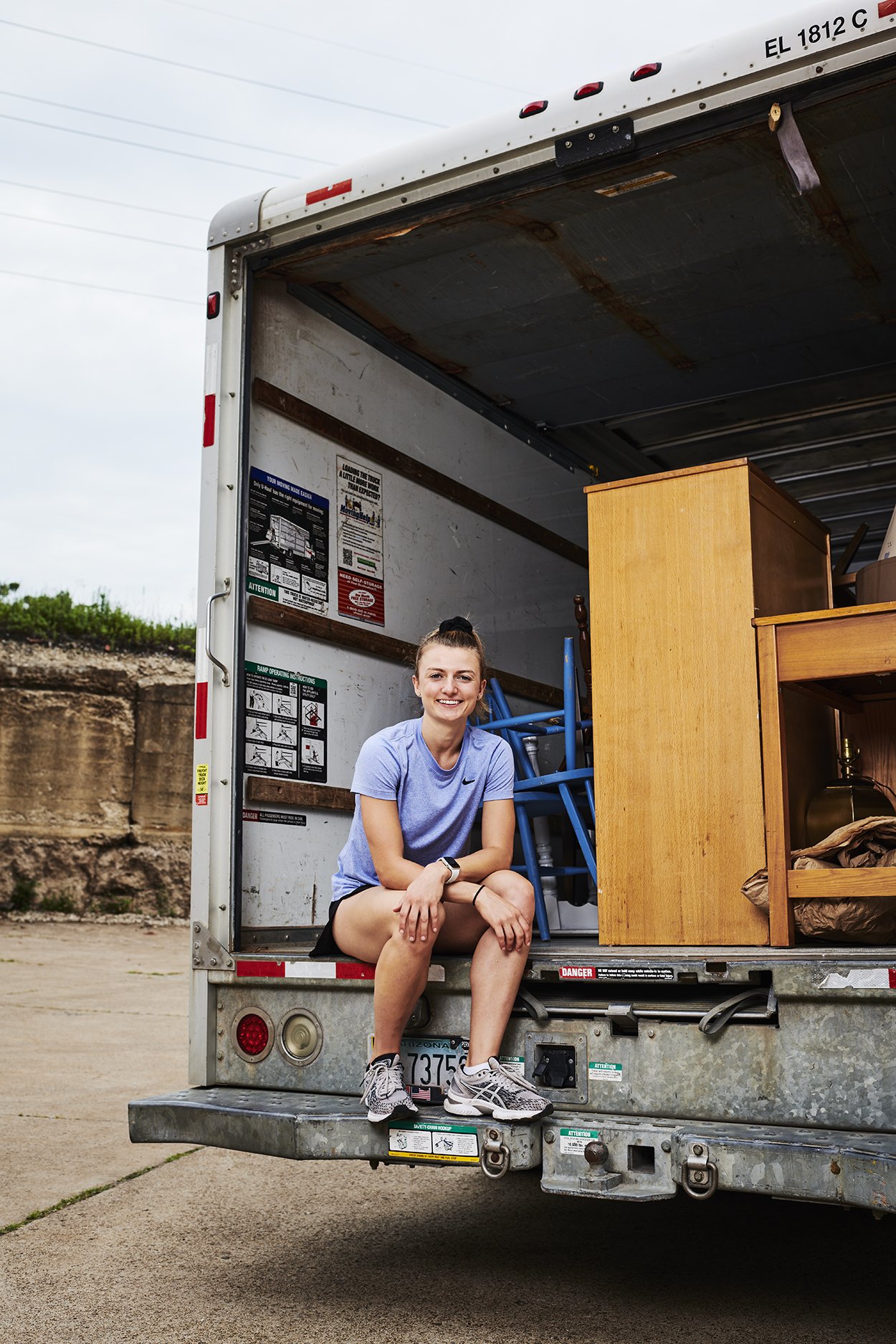Reader's Digest | Furnishing Hope
Original Article Via Readers Digest By Rebecca Meiser
Hannah Leszyeski was weeks away from having a baby, and the only furniture she had in her Cleveland, Ohio, apartment was a crib and an air mattress with a hole in it. “I had to keep waking up in the night and fill it,” she says. One year before, at age 18, she had aged out of foster care, having been in the system since she was four when her single mother was no longer able to care for her. Leszyeski was now en- rolled in college hoping to become a detective. She received a stipend from a state program that helps former foster care kids attending college. Still, niceties such as furniture just weren’t in her budget. Then she learned about Chair-ity, a nonprofit formed by 23-year-old
Maria Paparella. The Cleveland-based organization provides furniture and household goods to young adults who have left foster care. When Leszyeski reached out to Chair-ity, Paparella asked what she needed. “Everything,” she replied. She left it to Paparella to figure out what “everything” was. Leszyeski wasn’t home when the furniture arrived—her brother let the movers in. But when she walked into her apartment with her two-day-old baby boy, she gasped. In the once-empty apartment stood a full kitchen set, a bed, a dresser, two end tables, a desk, and a burgundy armchair with a footstool for nursing. “I was like, ‘Wow, they gave me all of this,’ ” Leszyeski recalls. “I was already stressed out about being a single mom. It relieved me of a lot.” Leszyeski’s story isn’t unusual. There are about 424,000 children in foster care in the United States. Every year, around 20,000 young adults (at age 18 or 21, depending on the state) age out of the system, often with- out the support of a trusted adult to turn to for life advice—or furniture hand-me-downs.
Paparella first became aware of foster care in elementary school when her parents were considering adopting a child. The plan didn’t work out,
“THE IDEA OF NOT HAVING A SOFA TO SIT ON PULLED AT MY HEARTSTRINGS.”
but Paparella often found herself thinking about that girl. “I’m really close with my family, and I just couldn’t imagine being completely on my own at 18,” she says.
At 16, Paparella visited Summit County Children Services in Akron, Ohio, with a list of questions, trying to understand what aging out looked like. One of her questions was “What’s not being met for these young people?” Near the top of the list was furniture. “That struck home,” says Paparella. The idea of “moving into an apartment and not having a bed to sleep on or a sofa to sit on—that pulled at my heartstrings.”
Paparella contacted her parents’ friends, asking if they had spare furniture to donate. A local furniture store, Chez-Del Interiors, offered free ware- house space and its delivery truck. Social workers provided referrals.
In between lacrosse games and college applications, Paparella—with her dad’s help—added furniture delivery person to her résumé. Watching the recipients’ faces when they receive a bed, a couch—what-ever—was transformational. Paparella remembers delivering a gold lamp to a woman and watching her polish it lovingly, getting rid of smudges and fingerprints.
“To think that this thing that hadn’t been thought about in years nowbrought so much happiness to somebody was amazing,” Paparella says. Today,
Chair-ity has given furniture to nearly 200 young adults in homes across six Ohio counties. As word has gotten out, Paparella has received donations from people who have bought new furniture and want to get rid of their old pieces, people who are moving, people who have heard of her work on social networking sites. She’s convinced these contributions give the recipients hope and confidence.
Leszyeski agrees. Feeding her baby on the nursing chair or changing him at his dressing table gives her a sense of security. “It makes me feel like I’m no different than other parents. My whole life, I’ve felt abnormal,” she says. Now, “I feel normal.”

